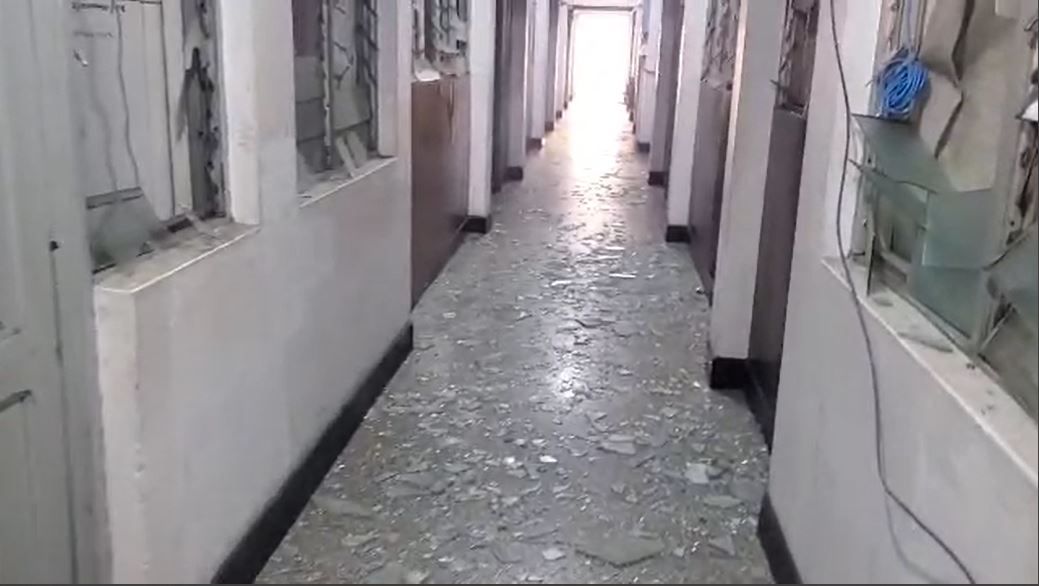
By Douglas BOATENG (Prof)
A call for collective responsibility and accountability
In every society, national progress depends on the collective determination of its people to preserve, nurture and grow their shared assets.
When citizens turn against what is meant to serve them, it is like drilling holes in the ship that carries them. If the ship sinks, everyone aboard – citizens, leaders, investors and future generations – will drown. We must confront this inconvenient truth.
The recent attacks by hoodlums on state institutions, workers and private enterprises, such as the destructive acts at the Electrochem facility in Ada, are a stark reminder of this reality.
These criminal acts, carried out under the guise of political activism, are unacceptable and must be addressed. These are not political actions; they are outright criminal offenses, and perpetrators must face the full force of the law.
The police, as the enforcers of justice, must act decisively. Political parties are not law enforcement agencies, and expecting them to step in only undermines the rule of law. When law enforcement fails to act, citizens are emboldened to take the law into their own hands, leading to instability, lawlessness and uncontrollable gangsterism.
The president’s clarion call and the need for accountability
Like all previous presidents, President Mahama’s recent declaration that “Ghana is open for business” reflects his commitment to attracting global investors. This statement was a clarion call for international collaboration and economic growth, made with the expectation that citizens would support this vision by doing the right thing.
The President is a citizen first and does not condone actions that contradict this call. Such behaviours undermine the trust and confidence necessary for investment. Sabotage is not only a betrayal of his vision but also a direct attack on Ghana’s long-term aspirations. How can a nation claim to be open for business when its citizens engage in acts that scare away investors and damage its reputation?
Leadership can only set the direction; it is up to the people to walk the path. When citizens fail to protect their own resources, they betray the collective effort required for national progress.
The cost of sabotage to national development
Sabotaging national projects such as Electrochem has far-reaching consequences. Beyond immediate destruction, such actions erode investor confidence and deter future investments.
Investors – both local and international – closely observe these incidents, and Ghana cannot afford to send the wrong signals.
Ghana has already seen the devastating effects of uncontrolled illegal mining, known as galamsey. Beyond environmental destruction, galamsey has caused rivers to become polluted, making water scarce for entire communities. This illegal activity undermines legitimate mining efforts, reduces government revenue and discourages international partnerships. Similarly, in South Africa, the theft of electrical cables has relatively paralysed essential services and disrupted industries. These actions have not only cost billions in revenue but have also left communities without power, stalling development and causing widespread frustration.
In Ghana, the theft of railway lines is another glaring example. Railways, essential for transporting goods and supporting industrial growth, have been sabotaged for short-term gain. These acts of destruction undermine national infrastructure, increase transportation costs and hinder economic progress.
In Nigeria, the Niger Delta provides a stark warning. Decades of pipeline vandalism, oil theft and militant attacks have crippled the industry. Communities that relied on oil revenue for infrastructure, education and healthcare now face stagnation. Billions of dollars in revenue have been lost due to these actions, leaving the Delta among the poorest regions in the country.
These examples demonstrate that when citizens sabotage their own resources, the entire nation pays the price.
The Electrochem project: A national treasure
Electrochem’s salt production initiative in Ada has the potential to position Ghana as a global leader in salt production, a critical input for industries such as pharmaceuticals, chemicals and energy. The project promises economic ripple-effects, including job creation, skills development and infrastructure improvements in the region.
What makes this project even more significant is MIIF’s substantial ownership stake, representing the people of Ghana. MIIF’s involvement ensures that the dividends from Electrochem’s success flow back to the state, supporting the national development agenda. Sabotaging this project is not just an attack on a private enterprise; it is an assault on Ghana’s collective aspirations and future prosperity.
By failing to protect national assets, a country undermines its future. If citizens cut down the tree that provides shade for everyone, they expose themselves to the harsh realities of instability and poverty.
Lessons for Ghana: The inconvenient truths
The lessons from these incidents are clear. The fate of one project can shape the future of an entire economy. By sabotaging a national project like Electrochem, perpetrators are not just harming a business; they are jeopardising Ghana’s economic stability.
National projects are like trees whose shade benefits everyone. When they are destroyed, the whole community suffers. Protecting these projects ensures that future generations inherit a thriving economy rather than one plagued by poverty and instability.
Greed and envy often lie at the heart of such sabotage, but it ultimately destroys what unity builds. A nation can only thrive when its citizens prioritise collective gain over individual interests.
A call for collective responsibility
The Electrochem project at Ada, with its vast potential, must be viewed as a national treasure. While it was initiated by a private entity, MIIF’s significant ownership stake makes it a shared asset, owned by the people of Ghana. It represents what can be achieved when public and private sectors collaborate for the greater good.
This is a wake-up call for all stakeholders – government, local leaders and citizens alike – to work together to protect Ghana’s resources. The mindset must shift from “What can I gain?” to “What can we build together?” Progress comes when collective gain is prioritised over self-interest.
The way forward: Protecting national projects and assets.
The police must take swift action against those responsible for acts of sabotage. Justice must be served, not just to punish wrongdoers but to deter future acts of lawlessness. As a nation, Ghana must demonstrate that it values its resources and will not tolerate their destruction.
To those engaging in sabotage, the message is clear: you are not hurting a company or an individual; you are hurting Ghana. You are denying opportunities for jobs, reducing the potential for community development, and threatening the nation’s economic stability.
Conclusion: A warning and a call to action
Sabotaging national assets and projects is like cutting the branch on which we all sit: it endangers everyone. Ghana’s journey to inclusive economic transformation will not be easy, but it is achievable if we protect and nurture projects like Electrochem.
The examples of instability, violence and lawlessness elsewhere remind us that failing to act decisively can lead to irreparable damage. Ghana must rise above petty divisions and individual greed to prioritise the collective good.
Let us remember that when we build together, we prosper together. When we protect our national assets and projects, we secure a brighter future for generations to come. The choice is ours: will we sink the ship, or will we steer it toward prosperity and hope?
The choice is simply ours to make!
The post The inconvenient truth: When we sink our own ship, we all drown appeared first on The Business & Financial Times.
Read Full Story





Facebook
Twitter
Pinterest
Instagram
Google+
YouTube
LinkedIn
RSS